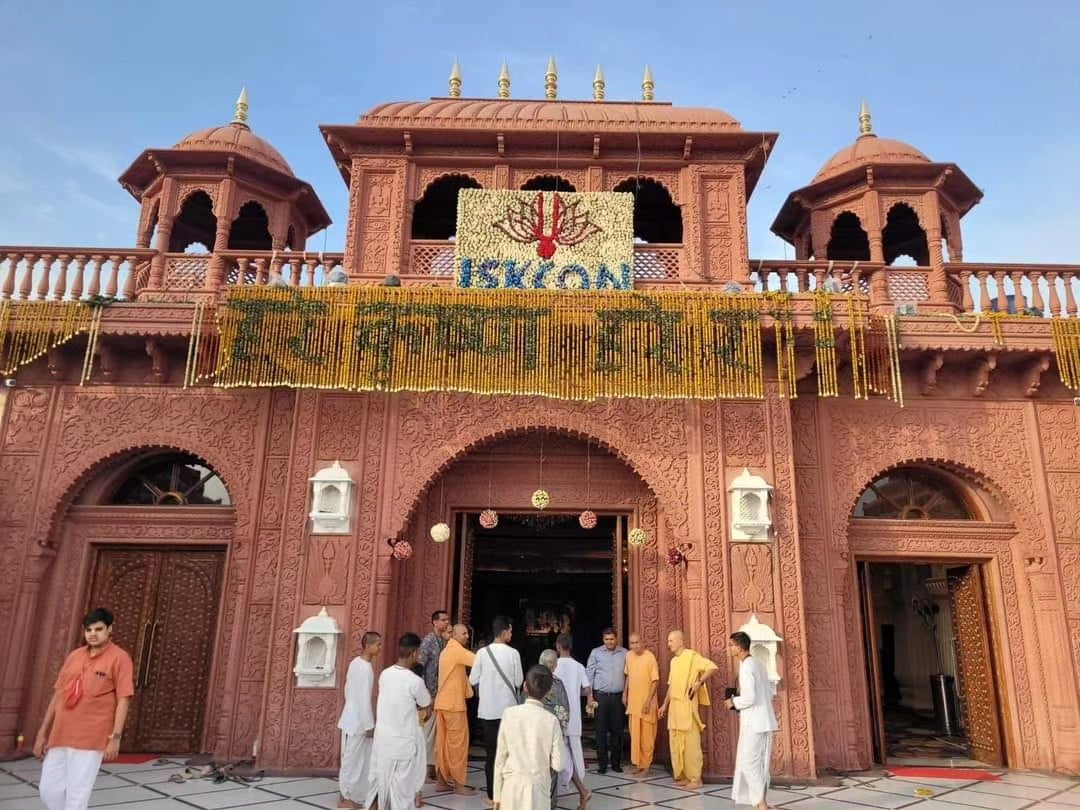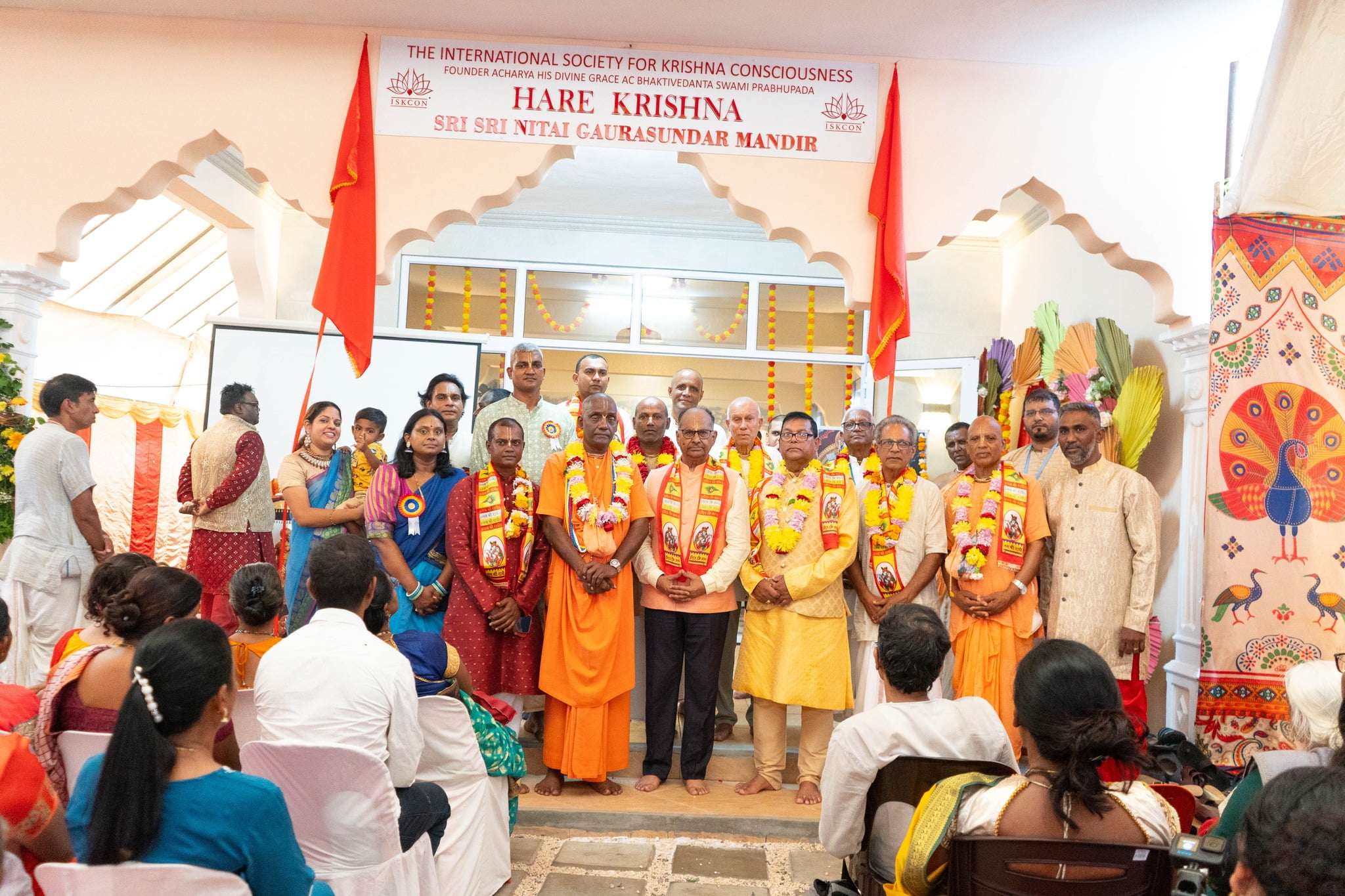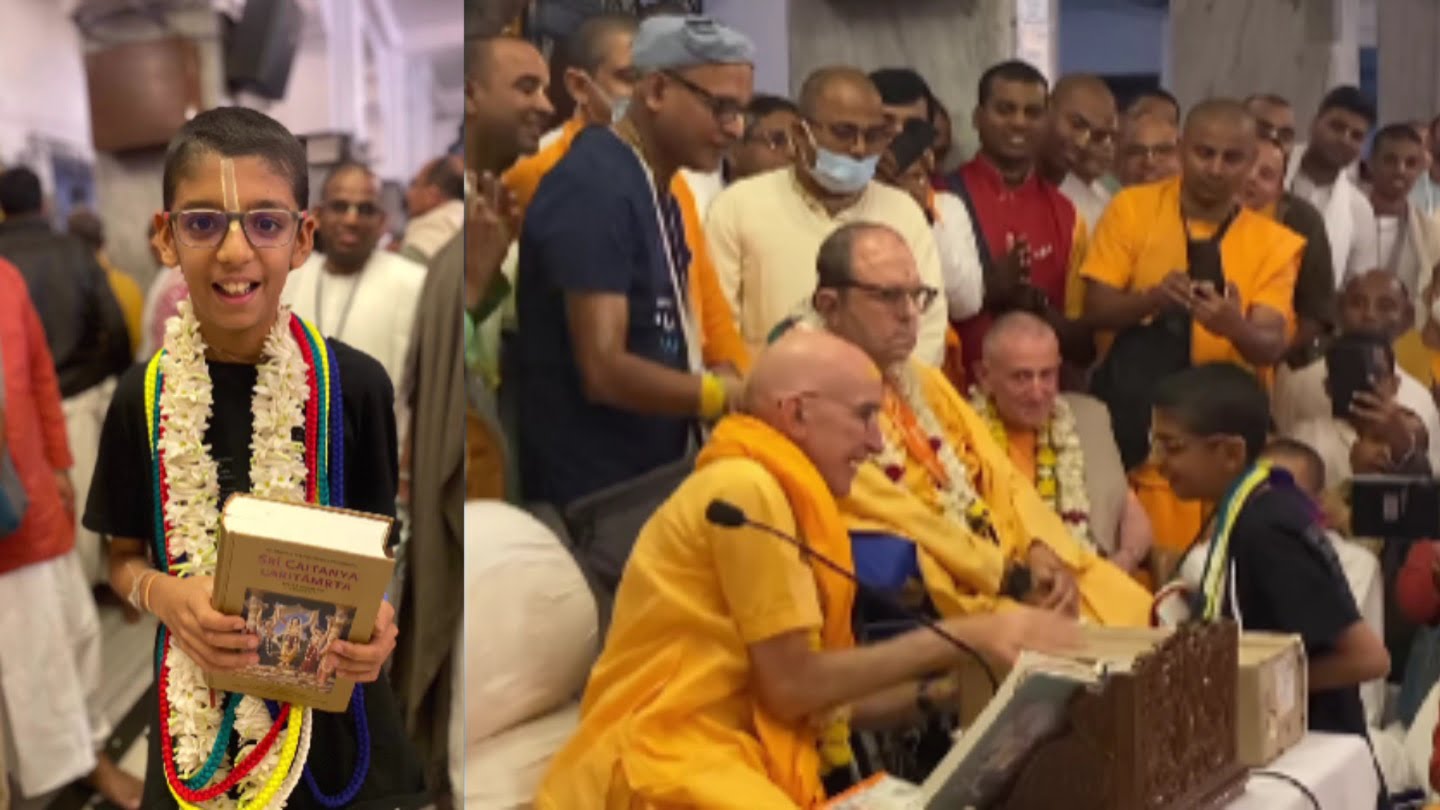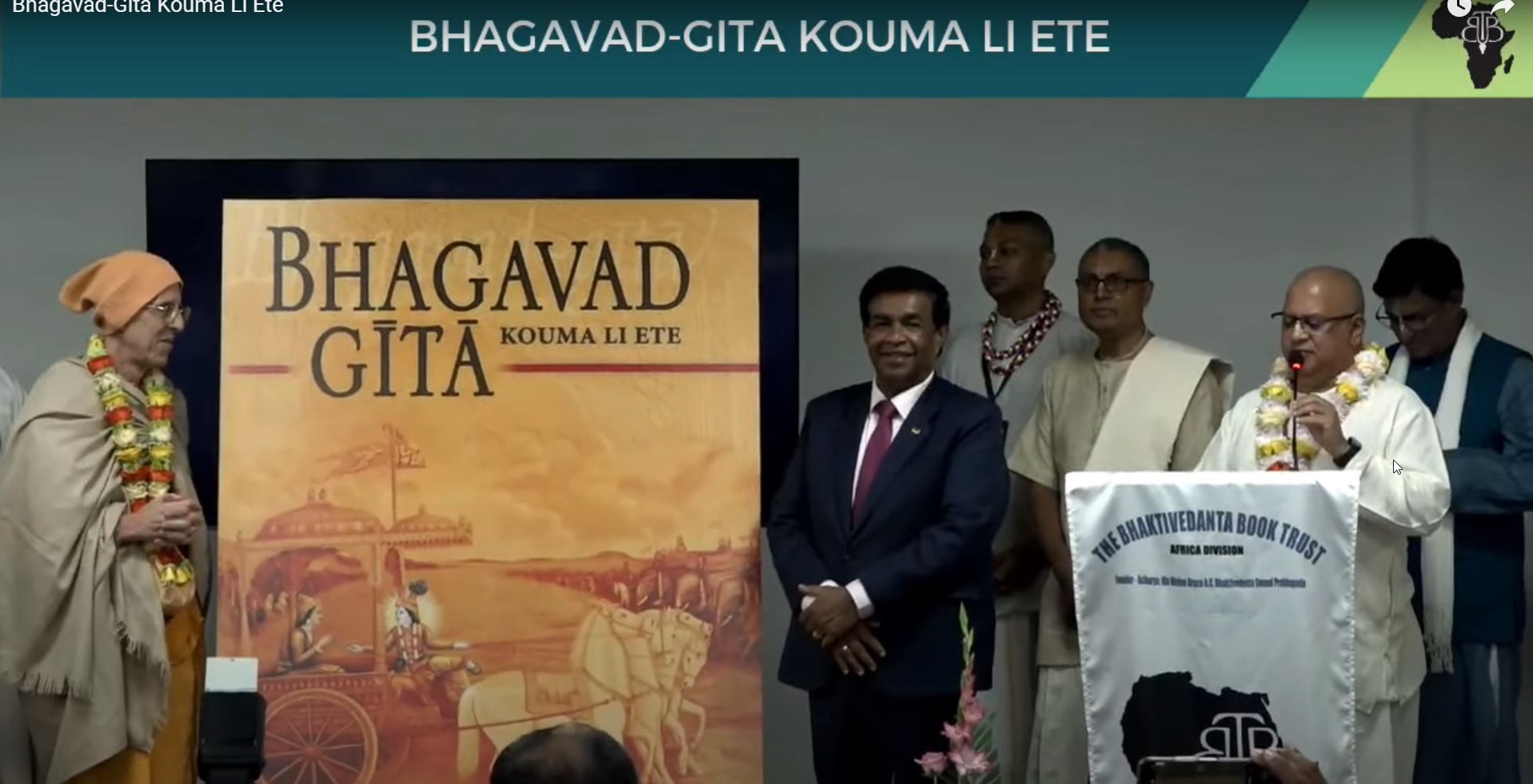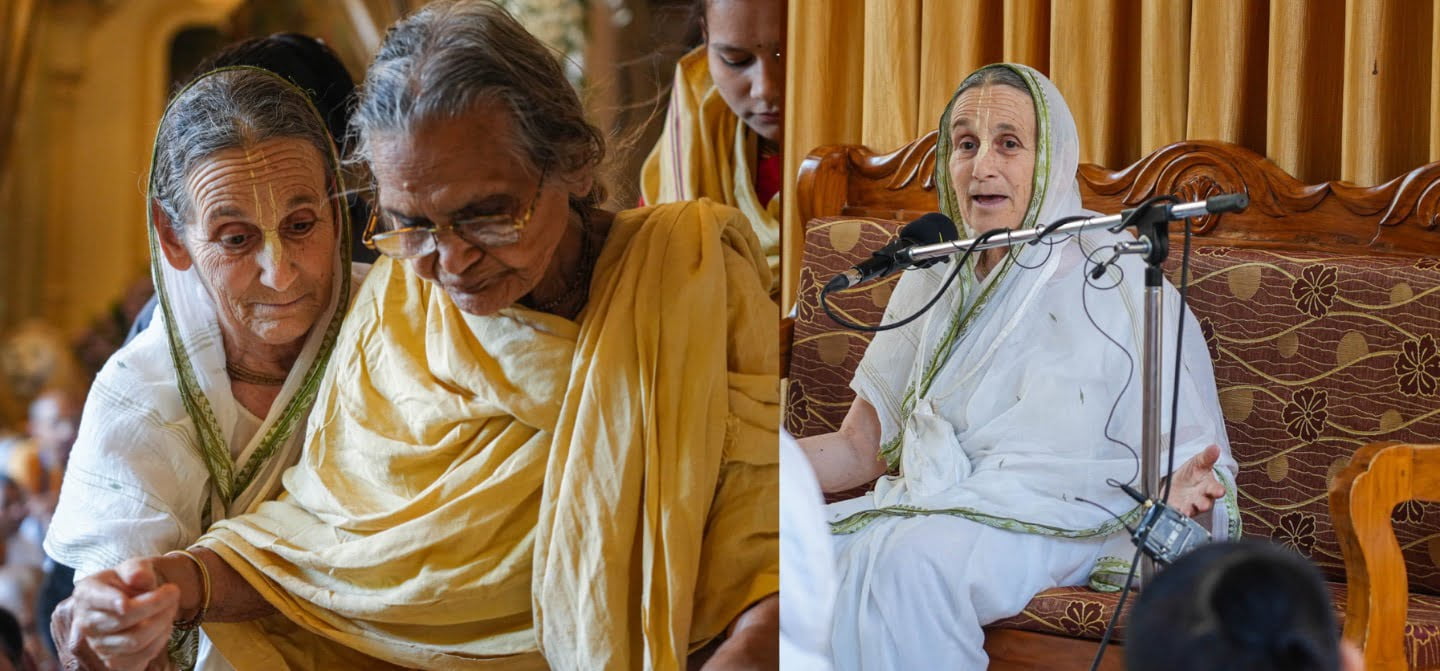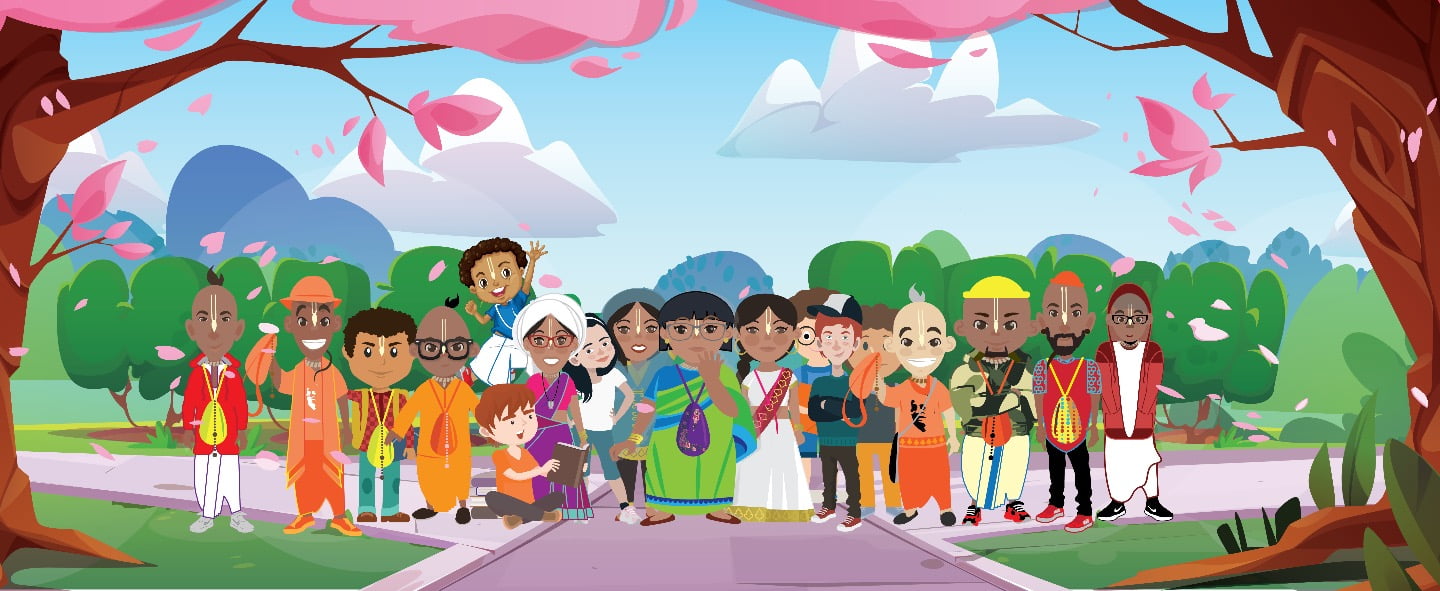“I Wanted to Go for a Walk”
By Luis Aubele | Jan 16, 2014
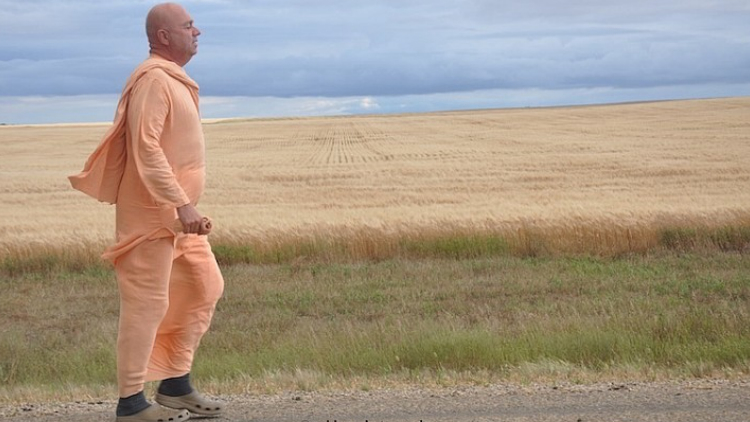
Interview with Bhakti Marga Swami in a prestigious Argentine newspaper Clarín Buena Vida. Translated by Arjuna Sakha das.
Visiting Buenos Aires, The Walking Monk reveals how trekking can guide to divinity. He comes from a 8.500 km. Journey that toured Canada from East to West.
“I was under the influence of Rahu, in Vedic astrology, a particularly bleak planet, full of anger and frustration. At first, I sought refuge in an ashram, a community of monks in Canada, and by observing and following their routine arose in me the need to live differently, to find a spiritual horizon”, recalls Bhakti Marga Swami, “The Walking Monk”, the Hare Krishna trekking priest who arrived in Buenos Aires after completing his fourth walking voyage across Canada, 8.500 km from East to West.”
Why walk?
“The monks themselves gave me the idea. They undertook long treks on dirt roads for purification, to find themselves, to meet people and get close to others. But there was a second reason: it was 1996, the birth centennial of my teacher, Bhaktivedanta Swami Prabhupada, who was born in Calcutta, India, September 1th, 1896.
Bhaktivedanta Swami passed away in November of 1977, and I wanted to remember him by offering my heart and my feet, so I walked. It was an enriching experience that gave me a chance to get closer to divinity. And to suffer the effects of snow and cold, then heat and mosquitoes; to practice detachment from worldly things. Besides, I thought my walk might be a good example for others. Imagine seeing a monk who did not seem to mind the fury of the elements through the tireless Canadian landscape”.
Bhakti Marga Swami, who´s original name is John Peter Vis, was born on October 5th, 1952, in Toronto, Canada. On the university campus where he studied Fine Arts, he met religious groups who put him in touch with who would later be his teacher, Swami Prabhupada, the founder of the Hare Krishna Movement and ISKCON (International Society for Krishna Consciousness). In addition, an important translator of classics like Bhagavad-Gita.
Bhakti Marga Swami followed in the footsteps of his teacher and is now a leader of the movement. Also, an instructor of bhakti-yoga, kirtan or singing yoga, and interactive dance. He’s in additiona recognized worldwide author and director of moral musical plays.
How do you see the world today?
“I see a polarized world. On one side, distress; bewildered people struggling with seemingly intractable questions in life. An uncertain horizon where the family unit is broken and has lost the values that helped to live. As a result, there’s a large and growing interior void that many unsuccessfully try to fill with alcohol, drugs or many other forms of escape. But on the other hand, I also see many people opening up to new spiritual horizons. People looking for and unable to find the light. And that’s really exciting! The American writer Mark Twain, who knew India, used to say that East was East and that West was West. And that they were never going to meet … but I think he was wrong.”
What’s your idea?
“I think that the two cultures can learn from each other. Go back to the profound and liberating concept that states that I’m not my body. I’m the soul, the spirit within the body. When we recover this principle, we’re prepared to reach deeper and more lasting relationships. Achieve peace, solidarity and the joy of living. Find superior levels where opposites come together to create something new. For centuries, the great sages of India concluded that to remedy the social malaise, people should seek opportunities to meet, talk, sing and dance, even share food prepared with love.”
An exercise for the average man approaching divinity?
I walk daily between 7 and 8 hours, but that’s an extreme. In fact, the main value is to use trekking as a means to find divinity. Start walking and look around trying to find the sacred in all we encounter. Then, step by step, the landscape transforms; time seems to stop and slowly we build a world whose leading role is divinity”, concludes the walking monk.
Genii, giants and Aladdin’s lamp
Between January and April of 1896, Mark Twain visited India. Here are some impressions rescued from his travel book: “India, the land of dreams and romance, of fabulous wealth and fabulous poverty, of splendor and rags, of palaces and hovels, of famine and fever, of genii and giants and Aladdin’s lamp. Of tigers and elephants, the cobra and the jungle. The country of a hundred countries and a hundred tongues, of a thousand religions and two million gods. Cradle of the human race, birthplace of human speech, mother of history, grandmother of legend, great grandmother of tradition… “
More information: www.thewalkingmonk.org; bhaktimargaswami@gmail.com; mathuradd@gmail.com



